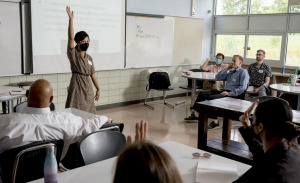
Study: Teacher licensing exams shrink Indiana’s pool of Black, Hispanic teachers
Indiana’s ubiquitous teacher licensing exam could be one reason behind the state’s shortage of teachers—especially Black and Hispanic teachers, according to a new report from Indiana University.


